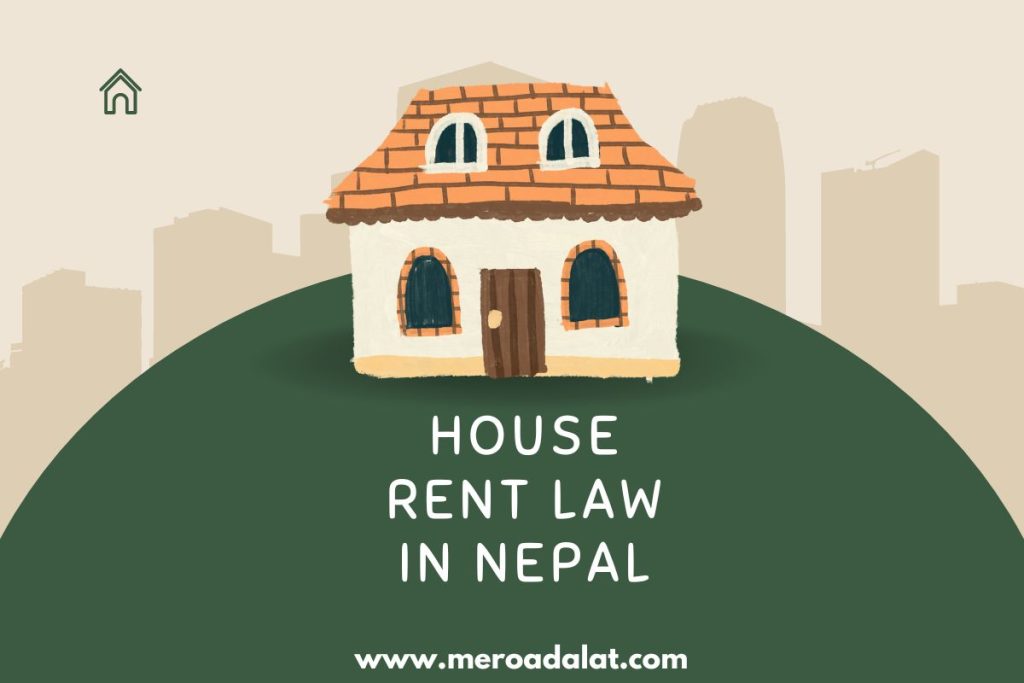
This article will guide you through all the provisions relating to house rent law in Nepal.
House rent law in Nepal is governed by Muluki Civil Code 2074.
House is referred to as any house, story, unit, or room of the house or land
or cartilage occupied by such a house.
If a person who has the right, possession, or ownership in a house lends gives the house to another person to use it for a certain period of time, then it is called house rent.

According to Muluki Civil Code 2074, a provision regarding house rent law in Nepal,
No person should rent or take on rent a house that is not safe for human habitation from health and security perspectives.
The time period for renting the house should be as per the agreement not exceeding 5 years. If a house is rented for a commercial purpose, it shall be as set forth in the agreement.
After the expiry of the time period, it can be extended with an agreement.
Agreement should be done by the house owners and renters mentioning the following matters in an agreement:
It is not necessary to enter into an agreement in writing with the tenant if the monthly house rent does not exceed twenty thousand rupees.
The agreement should also be signed by at least two witnesses each by the house owner and the tenant, and a copy of the agreement should be kept by the owner and the tenant.
Details of House to be Provided
The owner should disclose the weakness or fault, if any, in the structure of the house to the tenant.
House renters should pay according to the agreement. If there is no agreement regarding the payment then payment should be done within 7 days after the expiry of the month.
Except as in the agreement, it is the duty of the house owner to pay the tax leviable by law for the house rented. If the house owner doesn’t pay the tax, the house renter may pay the tax and such payment is deducted from the house renter while paying the rent.
A house renter who rents a house for industrial or business purposes shall make the insurance of the house for its security.
Except as an agreement, the house renter is obliged to repair and maintain the house.
Yes, the house owner can check the rented house by giving a pre-notice.
Yes, a house renter can leave the rented house before the expiration period under the following conditions:
1. If the house owner fails to perform his or her obligations pursuant to Section 389.
2. If the tenant no longer needs the house for the purpose
for which he or she rented it.
3. If the house owner does any act in contravention of the
agreement or this Chapter.
*The house renter should give a notice of leaving in writing to the house owner in advance of at least thirty-five days.
Yes, the house proprietor can evacuate the house tenant from the house beneath the taking after conditions:
1. In the event that the occupant falls flat to perform his or her commitments compatible with Section 390.
2. In the event that the occupant commits within the leased house any offense related to action disallowed by law.
3. In the event that the house proprietor needs the house for himself or herself.
4. In the event that it is fundamental to repair and keep up the house by expelling occupants from the house.
5. On the off chance that the leased house does not show up to be fitting for human residence from specialized and well-being perspectives,
6. In the event that the period of the house lease expires.
7. In the event that the inhabitant does any act in the negation of the understanding of the law.
8. In case there exists the circumstance beneath Section 395.
*Before removing, the house owner should give the prior notice of 35 days to the house renter.